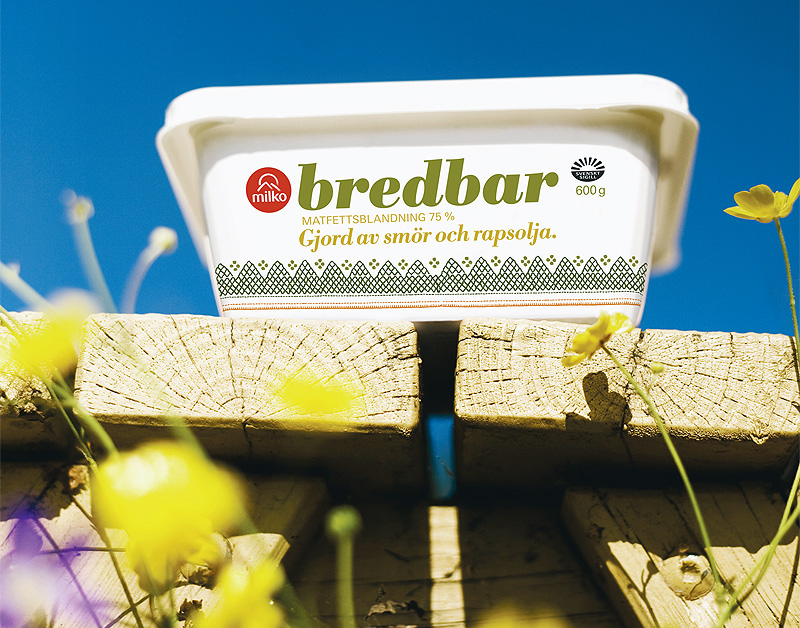
Milko
Dairy giants
With plans to improve production efficiency, Milko remains committed to offering consumers high-quality dairy products
One of Sweden’s largest dairy companies, Milko is a co-operative dairy owned by approximately 800 farmers across Sweden, turning over approximately 270 million euros per annum. The company’s main business region is known as ‘Milkoland’ and covers more than a third of Sweden. Milko has four production sites located in Östersund, Karlstad, Grådö and Sundsvall, as well as a cheese storage facility in Bollnäs.
Mikael Martinsson, general sales manager of Milko, elaborates on the business: “We are a family of small dairy companies that have been joined together under the Milko name for a number of years now. One of our main objectives is to provide the farmers that supply us with a fair price for their milk. We are the number two producer of drinking milk in Sweden and provide a range of dairy products including drinking milk, sour milk, cream, crème fraiche, and yoghurt for the consumer market. We also manufacture cheese and butter.”
Currently Milko is in the middle of negotiations with the trade union to reduce its number of sites from four to two. Mikael explains the reasoning behind this: “Swedish milk production has decreased by quite a large percentage over the last ten years, which means we need to raise the price we pay farmers for their milk. We need to be using our production plants as efficiently as we can and currently our four sites are running at 50 per cent capacity. By closing two facilities, we can maximise production at the other two sites and reduce our overhead expenditure.”
In 2005 Milko was the first company in the world to use an innovative new packing concept from Elopak. The new packaging known as the Standard Diamond Pure-Pak Curve Carton has an appealing curved shape and a screw cap with wider spout. Milko has since replaced its old Tetra Pak cartons with this new Elopak packaging. The company’s two sites at Sundsvall and Karlstad still have the old Tetra packing machines and this is another motivation behind the company’s plan to reduce its sites, as it continues to adopt the new Elopak cartons.
As well as producing for the Swedish market, Milko also exports its products to a number of neighbouring countries. “We sell industrial goods such as milk powder, milk concentrate and butter to Germany, Holland, the Netherlands and France. We also export our cheese to Greece, Russia and Finland. This year we have seen an increase in product demand from Greece, Finland and Denmark which is very positive,” says Mikael. Milko also produces some dairy products for the Norwegian markets, such as drinking yogurt, using milk supplied directly from the large Norwegian dairy group TINE.
Dealing with products with such a short shelflife means Milko’s primary focus is to optimise its production and distribution so that customers receive a product with as much shelf-life as possible. Mikael comments: “We transport our goods across Sweden, which can mean long distances between the collection of the milk and delivery of the final products. Our main goal is to ensure that we provide our customers with fresh products. We have also seen a rise in sales of extended shelf-life products, which is beneficial when exporting to other countries.”
An awareness of environmental responsibility has led Milko to innovatively use its major customers’ distribution logistics in an attempt to reduce empty kilometres, which are wasteful and expensive. Mikael describes the strategy: “When customers such as the supermarkets make deliveries of goods to their stores, they then collect our products from us on the way back to take to their storage facilities. Where this is not possible, we operate our own deliveries but always aim to pick up a delivery for the way back at the same time.”
One of the main strengths of Milko is its commitment to producing pure products without the use of chemical additives, e-numbers or gelatine. “We are seeing a rising trend in Sweden of consumers that don’t want products containing additives, which is an area that we specialise in. We also have a label on our products to show that they are Swedish in origin. Sweden has strict laws about animal welfare, such as it is essential that cows are allowed outdoors in the summer – you can’t keep them locked up all year; and the use of genetically modified organisms (GMO) products are also banned. So our label informs customers that they’re buying a product that is pure, safe and responsible,” says Mikael.
He concludes with Milko’s vision for the future: “We have identified a number of opportunities to grow the business and see potential for the market to increase, both through export and the rising demand within the Swedish market for products made with local ingredients.”